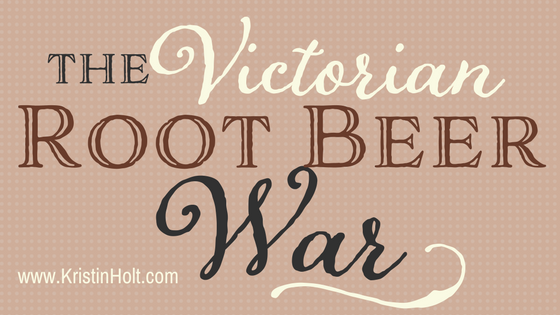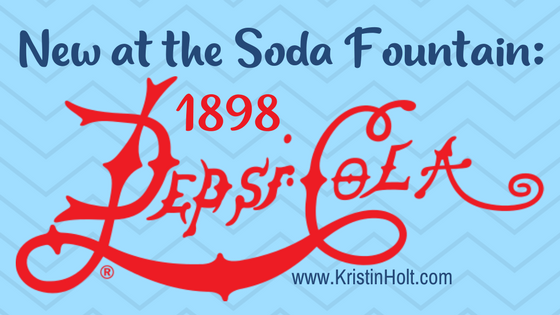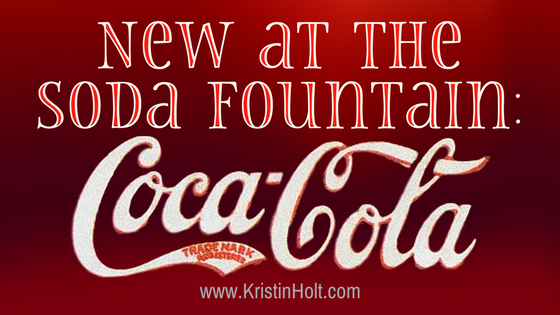
by Kristin Holt | Aug 6, 2017 | Articles
Dr Pepper was born in 1885–FIRST of national soda flavors–a result of Victorian ingenuity and creativity, in Waco, Texas. Vintage newspaper ads show the soda fountain beverage’s claim to natural, healthful medicinal value–while strictly claiming an absence of all harmful substances. I discovered interesting details I’d never heard before… Perhaps you will, too!

by Kristin Holt | Jul 27, 2017 | Articles
Hires Root Beer, from its debut in the mid-1870s, was sold as a refreshing beverage (with no medicinal expectations). The name, chosen by Charles H. Hires, to appeal to tough coal miners, who’d never find “root tea” attractive, ended up causing Hires Co. a bit of trouble with Women’s Christian Temperance Union (WCTU). Who knew that “beer” in a name, and the common knowledge that root beer extract was percolated with alcohol (though the finished drink had no more than a whole loaf of homemade bread), to cause banning of the beverage?

by Kristin Holt | Jul 15, 2017 | Articles
Pepsi-Cola was born in North Carolina from a soda fountain beverage first known as “Brad’s Drink”. Caleb Davis Bradham ran a drugstore and served cola-based beverages to his customers. His own creation, (“Brad’s Drink” which became) Pepsi-Cola, arrived at the turn of the century. Pepsi-Cola few with the new (20th) century, with changing logos, bottle shapes, and the nickel-a-glass price. One big difference from Victorian Coca-Cola? Twice the size of that glass, for the same price.

by Kristin Holt | Jul 8, 2017 | Articles
“[Coca-Cola] has gained an enviable reputation, and has taken position at the very front of the leading and popular soda fountain beverages,” said The Atlanta Constitution of Atlanta, Georgia, on June 21, 1891. People loved the beverage (and its medicinal value), and many wrote testimonials in its favor. So why the complaints? A vintage article titled It Looks Like a Dangerous Drink, originally published in The Abbeville Press And Banner of Abbeville, South Carolina, on July 1, 1891 brings up concerns and presents arguments on both sides, urging consumers to draw their own conclusions. Had YOU been a consumer in 1891, what would you have thought?

by Kristin Holt | Jul 2, 2017 | Articles
Coca-Cola was born in Atlanta, and quickly gained popularity at drugstores and soda fountains, showing up very quickly a thousand miles away in mid-Kansas! Coca-Cola was touted for a wide variety of medicinal benefits, including nervous affections and sick headache. In less than fifteen years, Coca-Cola was widely known from New England to Los Angeles. Coca-Cola belongs on the long list of American Victorian Inventions.













